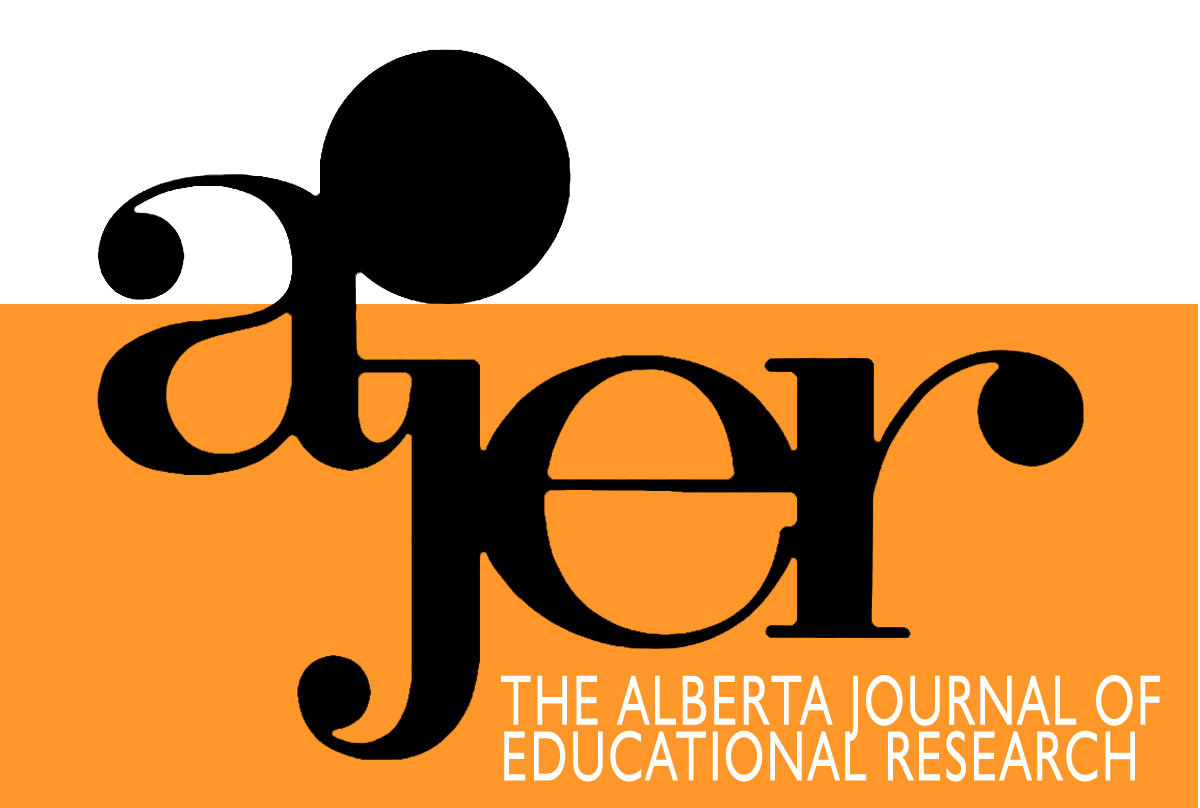Relational Trust: The Glue that Binds a Professional Learning Community
DOI:
https://doi.org/10.55016/ojs/ajer.v57i1.55455Keywords:
Professional learning communities, trust, principals, leadershipAbstract
This article examines how principals describe the nature of relationships and presence (or absence) of relational trust among teachers, and between the teachers and the principal in the discourse of professional learning communities. Participants were 12 school principals from urban, suburban, and rural communities in Manitoba. In the discourse of learning communities, the notion of trust is articulated as being relational in its orientation and developed around group norms of safety, risk-taking, and change orientation. The existence of relational trust appears to have the effect of fostering collaboration and promoting willingness among staff to grow professionally. The study also suggests the important role that principals play in establishing relational trust as a precondition for the growth of a professional learning community. Because relational trust appears to be critical to the functioning of a professional learning community, it may be unlikely that substantive school improvement can be achieved without close attention to it.
Cet article porte sur la description que font les directeurs d'école de la nature des rapports des enseignants entre eux, des rapports entre les enseignants et le directeur, et de la présence ou l'absence de confiance relationnelle dans le contexte de communautés professionnelles d'apprentissage. Douze directeurs d'école de communautés urbaines, rurales et de banlieue du Manitoba ont participé à l’étude. Dans le discours des communautés d'apprentissage, on décrit la notion de confiance comme ayant une orientation relationnelle et en termes de développement des normes collectives touchant la sécurité, la prise de risque et l’orientation vers le changement. L'existence de la confiance relationnelle semble favoriser la collaboration et promouvoir la volonté chez le personnel de s'épanouir sur le plan professionnel. L'étude évoque également le rôle important que jouent les directeurs d'école dans l'établissement de la confiance relationnelle comme condition préalable pour l'épanouissement d'une communauté professionnelle d'apprentissage. La confiance relationnelle semblant être critique au fonctionnement d'une communauté professionnelle d'apprentissage, il est peu probable qu'une amélioration significative puisse avoir lieu dans une école si on n’y prête pas attention.
Downloads
Issue
Section
License
UNIVERSITY OF ALBERTA COPYRIGHT LICENSE AND PUBLICATION AGREEMENT
If accepted, authors will be asked to sign a copyright agreement with the following points:
A. Where there is any inconsistency between this Copyright License and Publication Agreement and any other document or agreement in relation to the same subject matter, the terms of this Agreement shall govern.
B. This document sets out the rights you are granting in relation to publication of your article, book review, or research note entitled (the “Article”) through inclusion in the academic journal titled Alberta Journal of Educational Research (the “Journal”) published through the Faculty of Education, representing the Governors of the University of Alberta (the “Journal Editor”).
C. There will be no payment to you for this publication and grant of rights. In consideration of the agreement to publish the Article in the Journal:
1. You are warranting that:
- the content of the Article is your original work, and its content does not contain any material infringing the copyright of others; or, where the Article is not entirely your original work, you have obtained all necessary permissions in writing to grant the rights you are giving in this agreement;
- the content of the Article does not contain any material that is defamatory of, or violates the privacy rights of, or discloses the confidential information of, any other person;
- the Article has not been published elsewhere in whole or in part, and you will not allow publication of the Article elsewhere without the consent of the Journal Editor;
- the names of all co-authors and contributors to the Article are:
2. You agree to license the copyright in the Article to the Journal Editor, on a worldwide, perpetual, royalty free basis; and to the extent required by the terms of this agreement. You shall retain the right at all times to be acknowledged as the/an author of the Article.
3. You further agree that the Journal Editor has the entitlement to deal with the Article as the Journal Editor sees fit, and including in the following manner;
- The right to print, publish, market, communicate and distribute the Article and the Journal, in this and any subsequent editions, in all media (including electronic media), in all languages, and in all territories, ing the full term of copyright, and including any form of the Article separated from the Journal, such as in a database, abstract, offprint, translation or otherwise, and to authorize third parties to do so;
- The right to register copyright of the Journal;
- The right to edit the Article, to conform to editorial policy as the Journal Editor sees fit.
4. If any co-author or contributor to the Article does not sign this agreement, the Journal Editor reserves the right to refuse to publish the Article.



